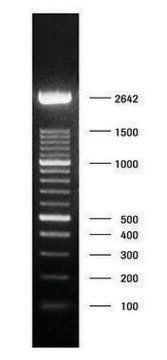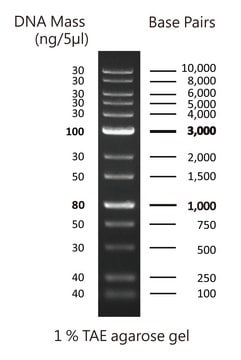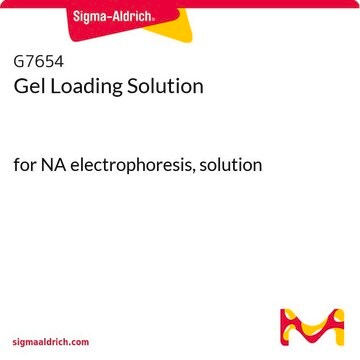D0428
1 kb DNA Ladder
for DNA electrophoresis
Synonym(s):
1kb gel ladder, 1kb gel marker, 1kb ladder for gel electrophoresis, DNA gel marker, agarose gel electrophoresis ladder, agarose gel electrophoresis marker
Select a Size
Select a Size
About This Item
Recommended Products
General description
Application
Components
Other Notes
Legal Information
related product
Storage Class
10 - Combustible liquids
flash_point_f
Not applicable
flash_point_c
Not applicable
ppe
Eyeshields, Gloves, multi-purpose combination respirator cartridge (US)
Choose from one of the most recent versions:
Certificates of Analysis (COA)
Don't see the Right Version?
If you require a particular version, you can look up a specific certificate by the Lot or Batch number.
Already Own This Product?
Find documentation for the products that you have recently purchased in the Document Library.
Customers Also Viewed
Articles
Markers for gel electrophoresis aid size determination of DNA, PCR fragments, and RNA, staining well with common nucleic acid stains.
Choose the appropriate markers and ladders for nucleic acid size determination of samples separated by electrophoresis. Determine size of DNA, RNA and PCR-generated fragments using agarose or polyacrylamide gels.
Our team of scientists has experience in all areas of research including Life Science, Material Science, Chemical Synthesis, Chromatography, Analytical and many others.
Contact Technical Service











